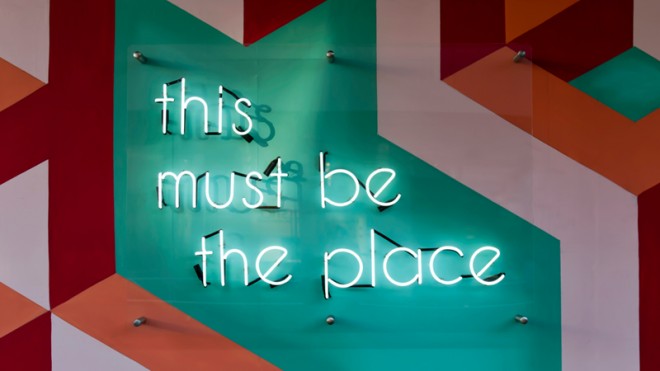
There is no doubt about it, social media and the popularity of influencer marketing has allowed brands to overcome many of the traditional barriers they used to face when attempting to reach their audiences. But it’s important to realize why platforms like Facebook, Instagram, and YouTube are so popular: they’re all about people. This is a critical concept for brands to understand as it will help you:
- Humanize your business
- Understand why influencer “Marketplaces” are ineffective
- Recognize trustworthy influencer marketing agencies
Humanize Your Business
Humanizing your business is about building intangible value. The Brand Bubble breaks down the components of intangible value into four main parts:
- Brand
- Market Position
- Business System
- Knowledge
In the 1950s, this intangible concept made up about 30% of a firm's value. Today, it’s close to 62% globally. But if we look at the top two components, brand and market position, the value emerges from more subtle assets like customer goodwill, company reputation, and brand identity. Really, these are all metrics of consumer trust. On the other hand, the bottom two components—business systems and knowledge—create value by signifying a strong infrastructure through assets like internal trust, human capital, and proprietary processes. For instance, maybe people know your brand as an eco-friendly, fair-pay, philanthropic fashion brand. This would be a stellar reputation, as PR Research Company, CORE , found that 87% of consumers will purchase a product because a company advocated for an issue they care about.
PR Research Company, CORE, found that 87% of consumers will purchase a product because a company advocated for an issue they care about.
Conversely, maybe you have a reputation for treating your employees badly, using sweatshop labor, and engaging in corporate undermining. This is going to do a number on your sales. In fact, about 76% of consumers will refuse to purchase a company’s products or services upon learning it supported an issue contrary to their beliefs. But how do you get people talking about the positive attributes of your company? It’s all about keeping your brand in the conversation.
Why Influencer Marketplaces Don’t Work
Imagine for a moment that I’m a micro-influencer. I’ve successfully represented big brands, I have an impressive following, and my engagement rating is through the roof. Check, check, and check. Now, you’re a high-end fashion brand looking to promote your newest line of handbags through influencer marketing. On paper, my profile looks like a home run. But as it turns out, I’m a fitness nut who could care less about handbags and high-fashion. How do you think my posts are going to perform if I start endorsing your product? They're going to tank. Plus, consumers can smell a sell-out from a mile away.
Consumers can smell a sell-out from a mile away.
While massive celebrity influencers walk (or perhaps cross) a fine line between a true endorsement and straight up advertisement, great influencer marketing is all about authenticity. This because high-quality content creators only represent products they genuinely believe in. If an influencer is just in it for the money, then what’s the difference between them and a paid actor in a commercial? Paying influencers to fake it is arguably the most common and costly mistake brands make. Not only will it be a waste of money, but it can also do damage to your reputation.
Influence Marketplace versus Influencer Marketing Agency
Influencer marketplaces boast about their tens of thousands of influencers like it’s something to be proud of. Do you really think they’ve meticulously vetted 100,000 influencers? Realistically, they probably built a generic “algorithm” based on a few basic metrics and called it a day. While we do use an algorithm to narrow our search, ApexDrop reinforces the vetting process by hand-selecting every influencer that makes it into our curated network of content creators and micro-influencers. But it’s not only the influencers that should matter to brands, it’s context. ApexDrop seamlessly aligns brands with influencers based on contextual attributes to ensure authentic posts that will build consumer trust in your brand. Likewise, the scale of the influencer should be considered. Celebrity: 1,000,000 + followers Maven: 100,000 + followers Prosumer: 20,000-10,000 followers Up-and-Comer: 5,000-20,000 followers For example, does it make sense for a Kardashian or a Jenner to be endorsing a boutique t-shirt company? No, the company would pay an astronomical price for very little return. In this case, it would be advantageous to align with Up-and-Comers and Prosumers. ApexDrop also inspects influencers for fake followers, likes, and comments. We even review their offline presence in order to determine what factors contributed to their online popularity (i.e., award winners, athletes, beauty contestants, etc.). For a moment, think back to why this method of marketing is successful: it’s for people, made by people. For this reason, a premier influencer marketing agency will also have good relationships with the influencers in their network. Through transparency, attention to detail, and supportive account managers, our influencers receive products they’ll love and create content that matches their passion.
Go With a Guarantee
With an influencer marketplace, you’re simply shooting in the dark. But with a trusted micro-influencer marketing agency like ApexDrop, your results are guaranteed. We’ve helped thousands of authentic micro-influencers connect with quality brands through contextual product gifting/trade collaborations. Through our unparalleled service in campaign management and our curated list of rigorously vetted influencers, we assure that our clients receive authentic, high-quality posts for every campaign. For more information, schedule a call with an ApexDrop Influencer Specialist today by clicking here.
